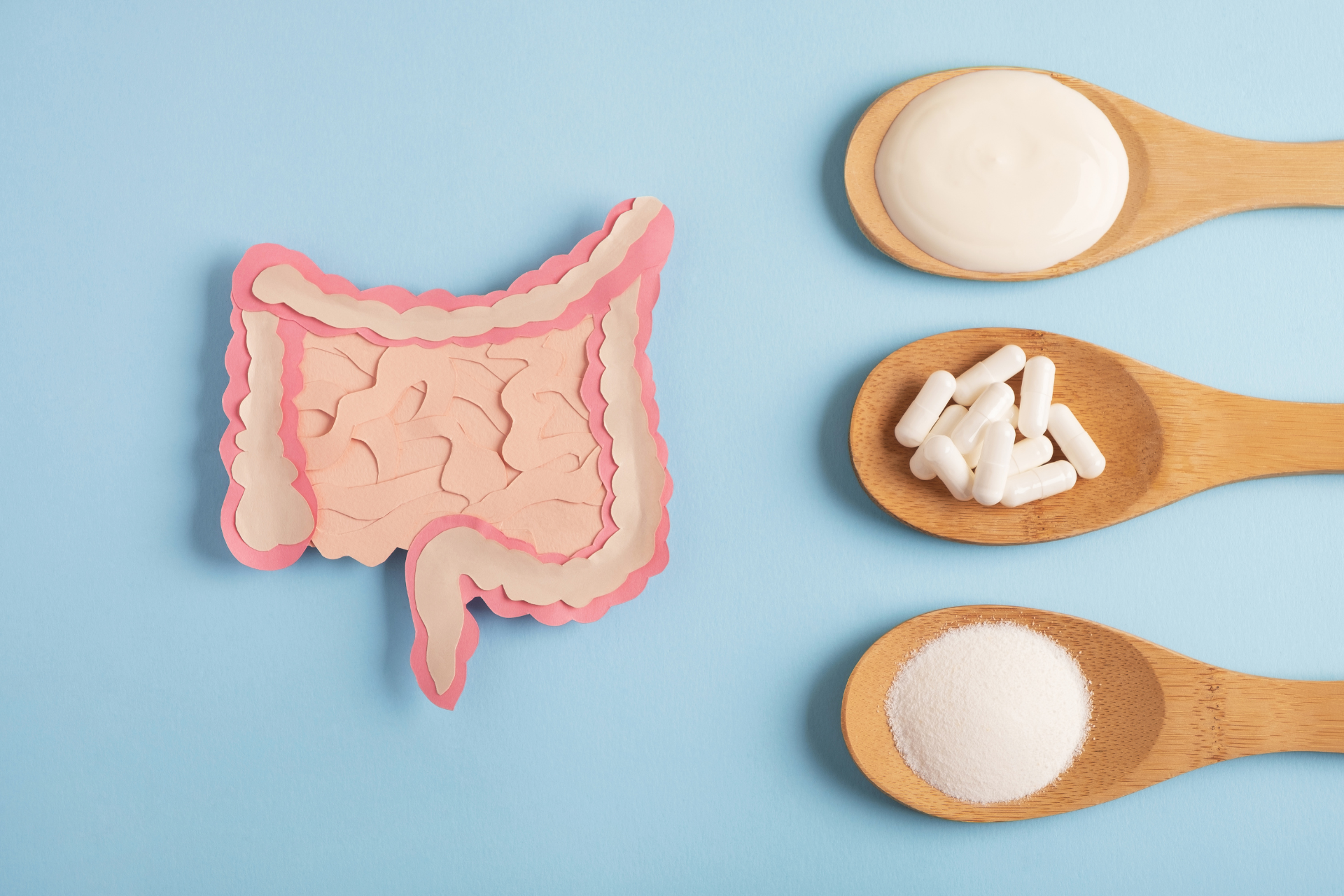
Akkermansia Probiotics: Benefits for Gut Health, GLP-1 Production, Weight Loss, and Glucose Control
Akkermansia muciniphila, a gut bacterium increasingly recognized for its role in metabolic health, has become a focus of research in the fields of weight loss, glucose regulation, and hormone modulation. With its unique ability to strengthen the gut barrier, regulate inflammation, and influence key metabolic hormones like GLP-1 (glucagon-like peptide-1), Akkermansia has garnered significant attention for its potential benefits in managing obesity and type 2 diabetes.
What is Akkermansia muciniphila?
Akkermansia muciniphila is a species of bacteria found in the mucus layer of the gut, where it plays a vital role in maintaining gut health. This bacterium helps break down mucins—glycoproteins that form a protective barrier in the intestines—and supports the integrity of the gut lining.
Recent evidence has shown that Akkermansia is more than just a gut-health supporter; it may also have profound effects on metabolism, weight management, and glucose regulation, largely through its interaction with gut hormones like GLP-1.
Akkermansia and Gut Health
Akkermansia plays a crucial role in maintaining a healthy gut barrier, balancing inflammation, and promoting a diverse microbiome. These functions are essential for overall health and preventing metabolic dysfunction.
- Strengthening the Gut Barrier: By producing enzymes that break down mucin, Akkermansia helps maintain the mucus layer that protects the gut lining. A stronger gut barrier prevents harmful bacteria and toxins from entering the bloodstream, reducing inflammation and promoting digestive health.
- Anti-Inflammatory Effects: Akkermansia has been shown to regulate gut inflammation, which can help lower systemic inflammation. This is especially important in reducing the risk of chronic diseases like metabolic syndrome and inflammatory bowel disease.
- Gut Microbiome Diversity: Higher levels of Akkermansia are associated with a more diverse and resilient microbiome, which is linked to improved digestion, better immune function, and a lower risk of chronic diseases.
Akkermansia and Weight Loss
Akkermansia has gained attention for its potential role in weight management, particularly in its ability to influence fat metabolism and appetite regulation.
- Fat Metabolism and Energy Expenditure: Akkermansia has been shown to enhance fat metabolism by improving insulin sensitivity and increasing energy expenditure. Individuals with higher levels of Akkermansia tend to have better metabolic profiles, including lower body fat and healthier cholesterol levels .
- Reduction in Fat Storage: Research indicates that Akkermansia can help reduce fat accumulation by improving insulin sensitivity and decreasing inflammation. In one study, obese individuals taking pasteurized Akkermansia supplements saw reductions in body fat and improvements in insulin sensitivity after three months .
- Appetite Regulation via GLP-1 Production: One of the most exciting findings is Akkermansia’s ability to stimulate the production of GLP-1, a hormone that promotes satiety and helps regulate appetite. GLP-1 plays a key role in weight management by signaling fullness to the brain and slowing gastric emptying, which can reduce overall calorie intake .
Akkermansia and GLP-1 Production
GLP-1 is a hormone that has been widely studied for its role in promoting satiety, enhancing insulin secretion, and reducing blood glucose levels. GLP-1-based medications like GLP-1 receptor agonists (such as semaglutide) are used for treating obesity and type 2 diabetes. Interestingly, Akkermansia muciniphila has been found to naturally enhance GLP-1 production in the gut.
- Increased Satiety: By stimulating GLP-1 production, Akkermansia can help regulate hunger and promote a feeling of fullness. This makes it a powerful tool in weight management, as increased GLP-1 levels can reduce overeating and promote weight loss .
- Enhanced Insulin Secretion: GLP-1 also enhances insulin secretion in response to food intake, helping to lower blood sugar levels after meals. This makes Akkermansia particularly valuable for individuals with type 2 diabetes or prediabetes, as it helps stabilize blood glucose levels.
Akkermansia and Glucose Control
Akkermansia muciniphila has also demonstrated significant potential in regulating blood glucose levels, making it a promising probiotic for managing diabetes.
- Improved Insulin Sensitivity: Studies show that Akkermansia can enhance insulin sensitivity, meaning the body can more efficiently use glucose for energy. In one clinical trial, participants taking Akkermansia supplements saw significant improvements in insulin sensitivity, along with reductions in blood sugar levels and body fat .
- Reduced Inflammation and Glucose Control: Chronic inflammation is closely linked to insulin resistance and type 2 diabetes. Akkermansia’s anti-inflammatory effects can help reduce this risk by lowering gut inflammation, which in turn can improve insulin sensitivity and overall glucose control .
- Long-Term Glucose Regulation: Another study showed that higher Akkermansia levels were associated with lower HbA1c levels, a marker of long-term blood sugar control. This suggests that Akkermansia supplementation could play a role in managing and preventing diabetes .
Research Evidence on Akkermansia’s Benefits
The benefits of Akkermansia muciniphila for weight loss, GLP-1 production, and glucose control have been backed by a growing body of scientific evidence:
- Weight Loss: In a 2019 study published in Nature Medicine, overweight individuals who took pasteurized Akkermansia supplements for three months saw significant improvements in insulin sensitivity, reductions in fat mass, and improved cholesterol levels compared to the placebo group .
- GLP-1 Production: Research has shown that Akkermansia enhances the production of GLP-1, a gut hormone that regulates appetite and glucose levels. This effect on GLP-1 has made Akkermansia a promising target for probiotic-based weight loss interventions .
- Glucose Control: In a 2021 study published in Gut, individuals with type 2 diabetes who had higher levels of Akkermansia muciniphila showed improved glucose control and lower HbA1c levels compared to those with lower levels of the bacterium .
How to Boost Akkermansia Levels
If you’re looking to boost your Akkermansia levels, there are several natural strategies:
- Prebiotic-Rich Foods: Akkermansia thrives on prebiotics, fibers that nourish beneficial gut bacteria. Foods like onions, garlic, asparagus, leeks, and oats can help stimulate Akkermansia growth.
- Polyphenol-Rich Foods: Polyphenol-rich foods such as cranberries, pomegranates, and green tea have been shown to promote Akkermansia growth and support gut health .
- Probiotic Supplements: While Akkermansia-specific supplements are still emerging, pasteurized Akkermansia has shown potential in clinical trials for improving metabolic health. Look for supplements that support a diverse microbiome and promote gut barrier function.
Here are some trusted references on the effects of Akkermansia muciniphila in weight loss, glucose control, and GLP-1 production:
Nature Medicine
This study emphasizes that Akkermansia muciniphila can enhance glucose metabolism and contribute to weight loss by improving gut barrier function and reducing inflammation. It also suggests that Akkermansia plays a role in GLP-1 production, which is important for regulating blood sugar and appetite.
Reference: Cani, P. D., Depommier, C., Everard, A., et al. “Supplementation with Akkermansia muciniphila in overweight and obese human volunteers: a proof-of-concept exploratory study.” Nature Medicine, 25(7), 1096–1103. Link to study
BioMed Central
Research published in BioMed Central highlights the role of Akkermansia muciniphila in improving insulin sensitivity and overall metabolic health by enhancing gut barrier integrity. This bacterium also helps regulate glucose levels, making it beneficial for individuals dealing with metabolic disorders.
Reference: Plovier, H., Everard, A., Druart, C., et al. “A purified membrane protein from Akkermansia muciniphila or the pasteurized bacterium improves metabolism in obese and diabetic mice.” Gut, 66(5), 870–879. Link to study
Frontiers in Microbiology
This review discusses how Akkermansia muciniphila interacts with lipid metabolism and reduces fat mass in animals. The research also suggests that Akkermansia can improve glucose homeostasis in humans, making it a promising probiotic for metabolic health.
Reference: Everard, A., Belzer, C., Geurts, L., et al. “Cross-talk between Akkermansia muciniphila and intestinal epithelium controls diet-induced obesity.” Frontiers in Microbiology, 4, 398. Link to study
Metagenics Institute
A comprehensive review from the Metagenics Institute found that supplementing with pasteurized Akkermansia muciniphila can improve insulin sensitivity and aid in weight loss. The study also noted reductions in body weight, waist circumference, and hip circumference in individuals who supplemented with this probiotic.
Reference: Metagenics Institute, “Akkermansia muciniphila and its role in metabolic health.” Link to review



